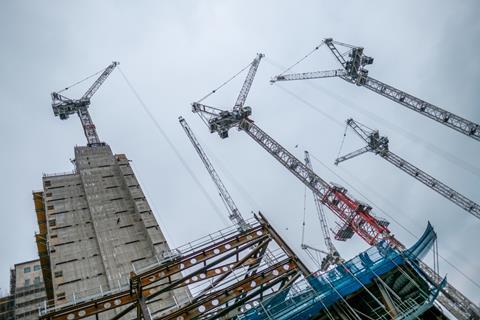S&P Global/CIPS report says falling orders, high interest rates and election will keep lid on demand
Output has fallen for the third successive month a bellwether index has said with economists adding to the gloom after warning of no immediate uptick in the coming months.
The S&P Global/CIPS UK construction Purchasing Managers’ Index (PMI) said the figure for November was 45.5, down from 45.6 the month before, and below the 50 no change mark for the third month running. Any score below 50 means a fall in output.
All sectors were below the 50 reading with housebuilding’s woes underlined by a score of 39.1 for November – although this was an improvement in the 38.5 recorded in October.

Civil engineering remained stuck at 43.5 while commercial work was also below the 50 threshold at 48.1
CIPS chief economist John Glen said: “There will be no quick fixes next year for the sector. Lower demand, elevated interest rates and the prospect of an election promise an uncertain start to 2024. This is a challenging moment for suppliers.”
And Max Jones, director in Lloyds Bank’s infrastructure and construction team, added: “The mood has changed within the sector in recent months. While inflation is tempering and there is hope that this could signal costs starting to become more manageable, many contractors are coming to the end of the current cycle of jobs which were priced before peak interest rates and inflation. There’s a level of anxiety being felt by contractors with concerns that profits are being squeezed further when the sector is already under significant pressure.”
The finance director of regional contractor Beard warned against the threat of firms bidding jobs at rock bottom prices to fill gaps in order books.
Fraser Johns said: “It’s highly likely that both tendering and cost plans will continue to face considerable pressure. As a result, we are actively encouraging clients to explore a more measured approach to procurement. Instead of going straight to tender, clients can engage with a contractor earlier and before planning, working collaboratively to save time and costs in the process.”
The PMI survey said employment fell for the first time in 10 months but materials prices fell at their fastest rate since July 2009.
Glen added: “The sector has finally emerged from a period of intense supply chain pressure and prices are now falling across the board, especially for timber and steel. Projects are no longer being delayed due to unexpectedly high material costs.”
















No comments yet